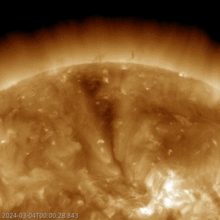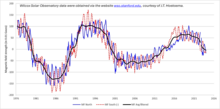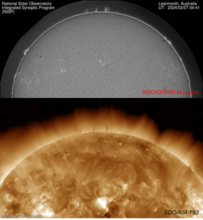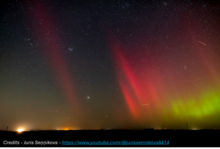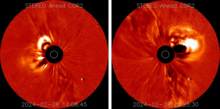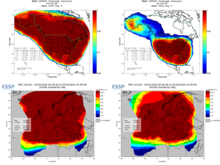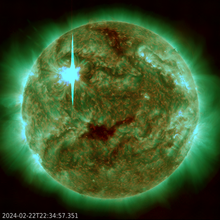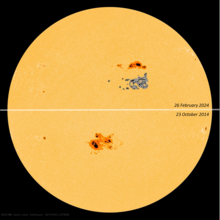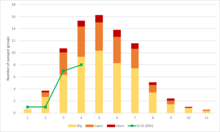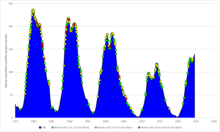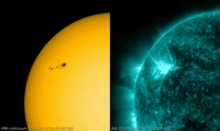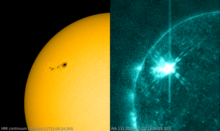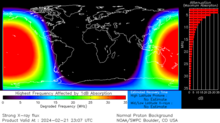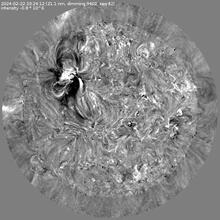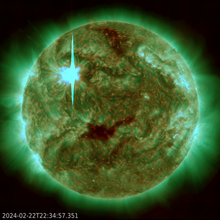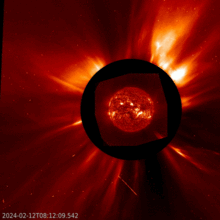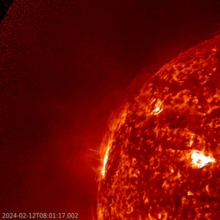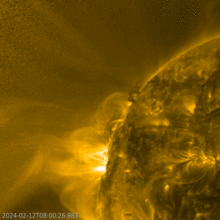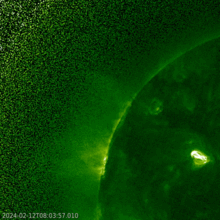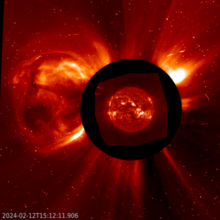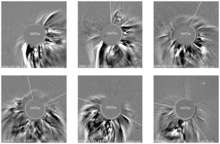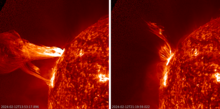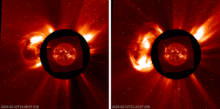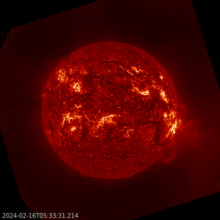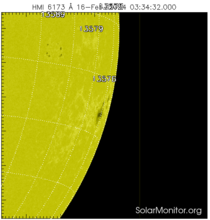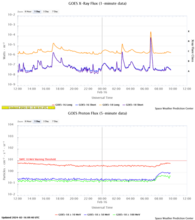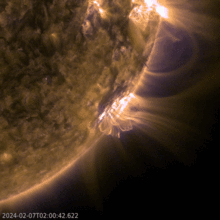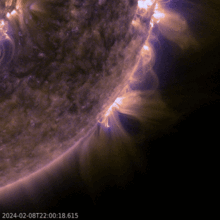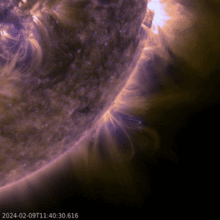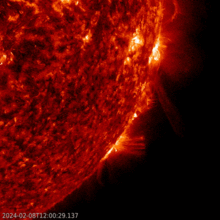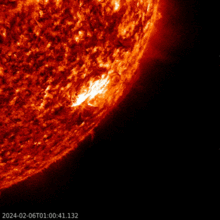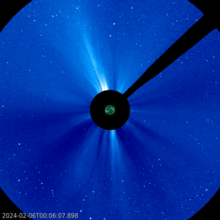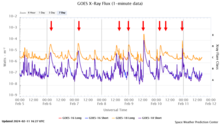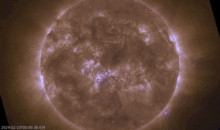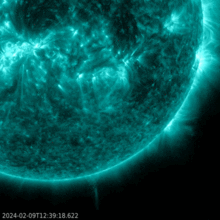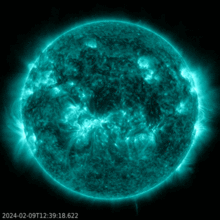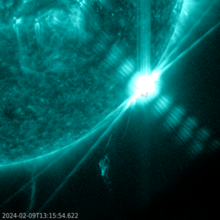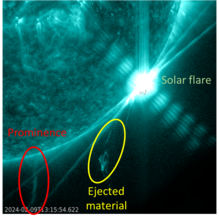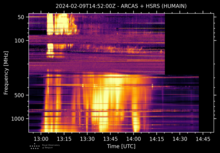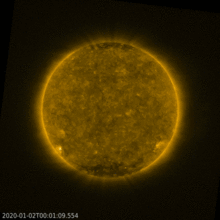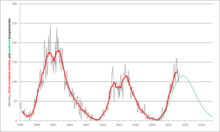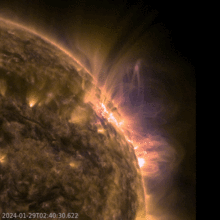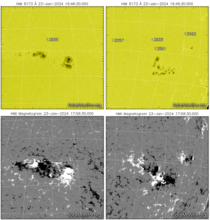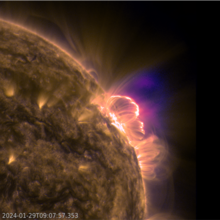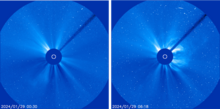news
Submitted on 2024-03-11
The polar field reversal on the Sun is ongoing, but it is not completed yet as testified by observations.
Submitted on 2024-03-05
A moderate geomagnetic storm was observed on 3 March. Polar lights were photographed as far south as mid-England and Lower Saxony in Germany.
Submitted on 2024-02-27
So far this solar cycle, NOAA 13590 is the largest sunspot group and it has produced the strongest solar flare. Some perspective.
Submitted on 2024-02-22
NOAA 3590 produced 3 X-class flares in 24 hours: an X1.8 flare peaking late on 21 February, an X1.7 flare peaking early on 22 February, and an X6.3 event that peaked on 22 February at 22:34UTC. The latter is the strongest flare so far this solar cycle. UPDATED.
Submitted on 2024-02-19
A stunning double eruption took place near the northeast solar limb on 12 February.
Submitted on 2024-02-16
NOAA 3576 unleashed a powerful X2.5 flare on 16 February at 06:53 UTC.
Submitted on 2024-02-13
A view on some of the most prolific flaring events that took place during the week of 5-11 February.
Submitted on 2024-02-09
A strong X3.3 flare peaked at 13:14 UTC on 9 February. The source region is thought to be NOAA 13575, located well beyond the southwest solar limb.
Submitted on 2024-02-07
The provisional smoothed sunspot number peaked at 125.2 in June 2023 (SILSO), marking what is most likely the first maximum of solar cycle 25. A second, higher maximum is expected later in 2024.
Submitted on 2024-01-30
Complex active region NOAA 3561 won this week's prize for most prolific M-class flare producer against the favorite sunspot region NOAA 3559. The latter took the award for most intense M-class flare.
Pages
Zircon - This is a contributing Drupal Theme
Design by
WeebPal.

